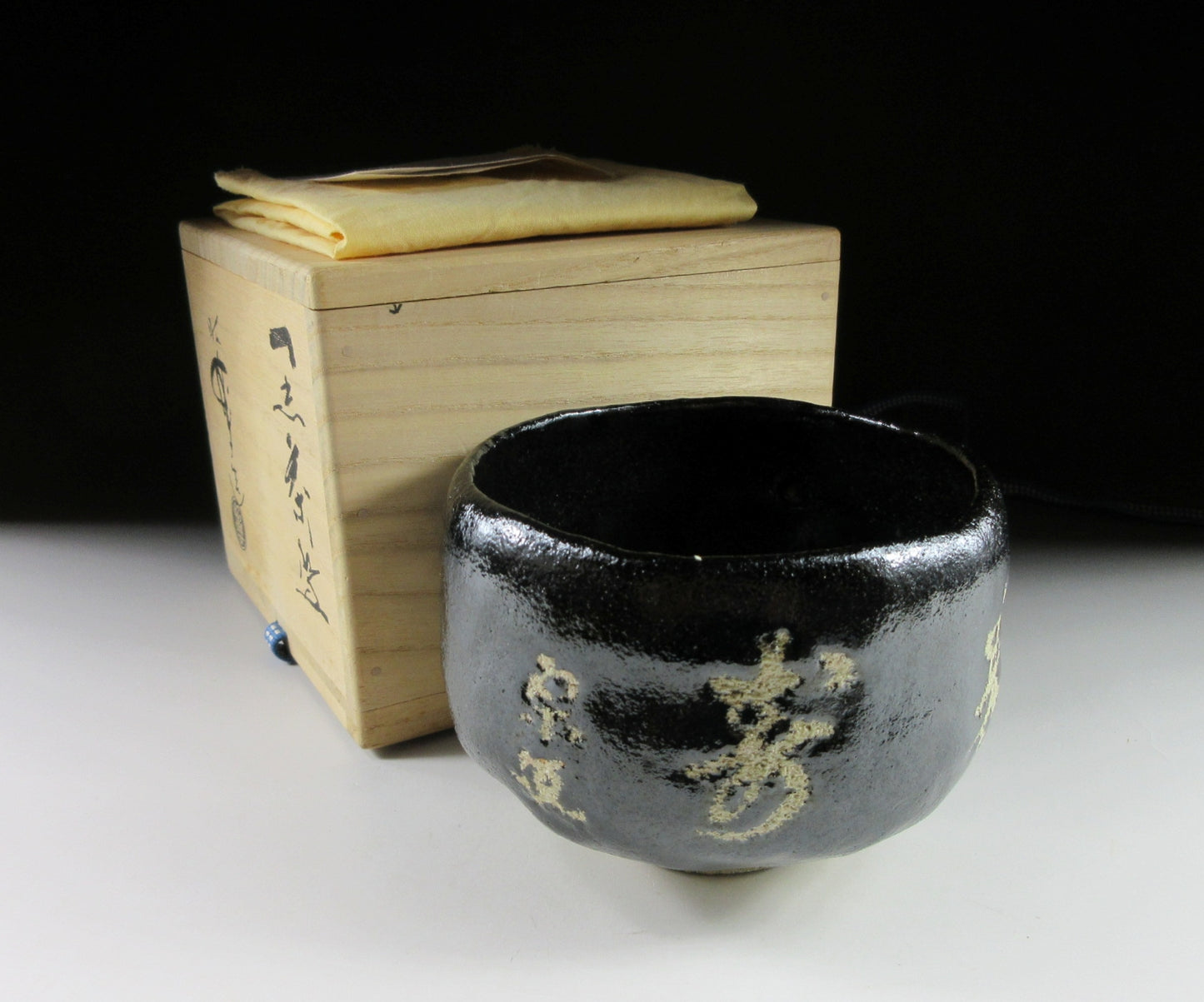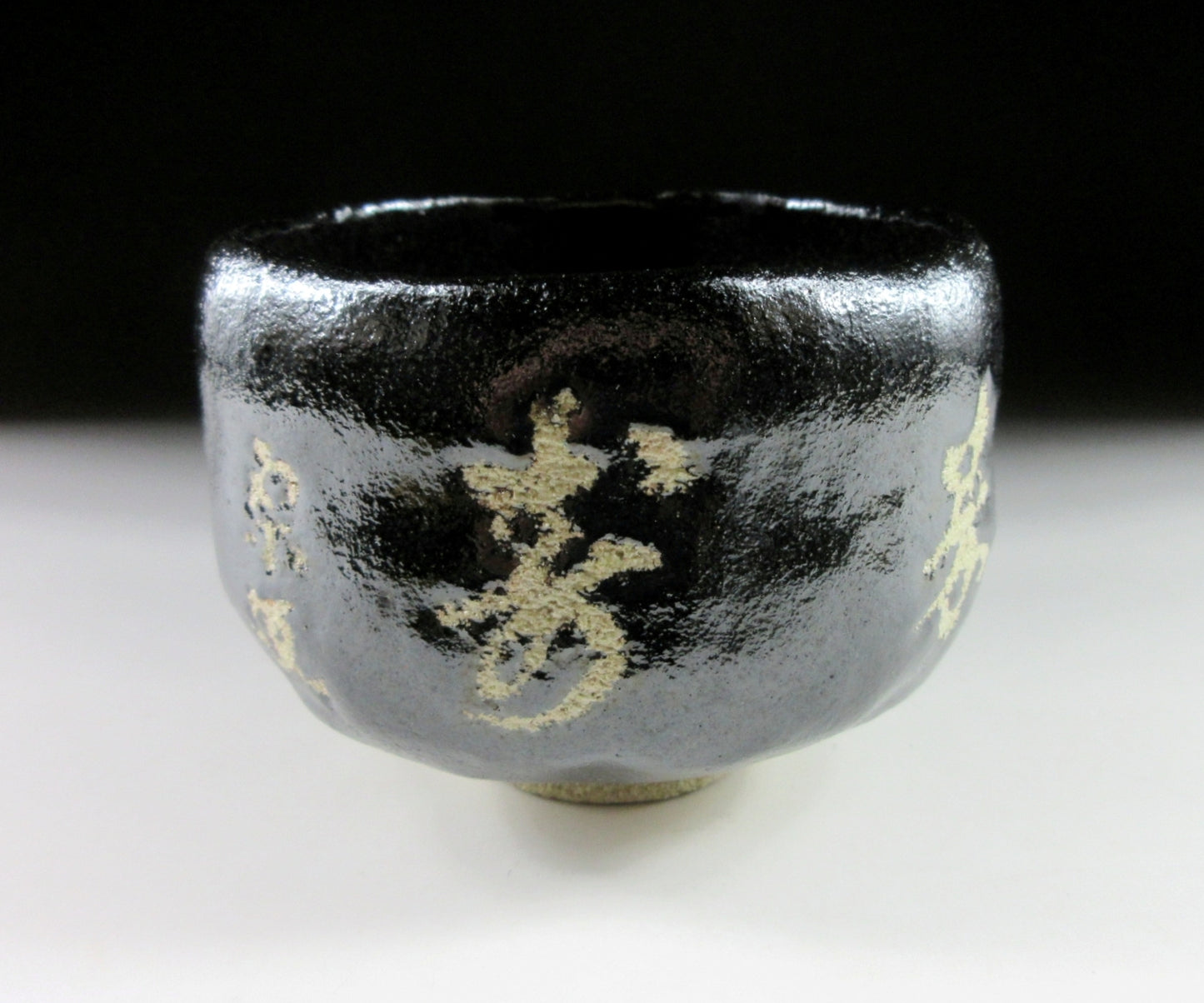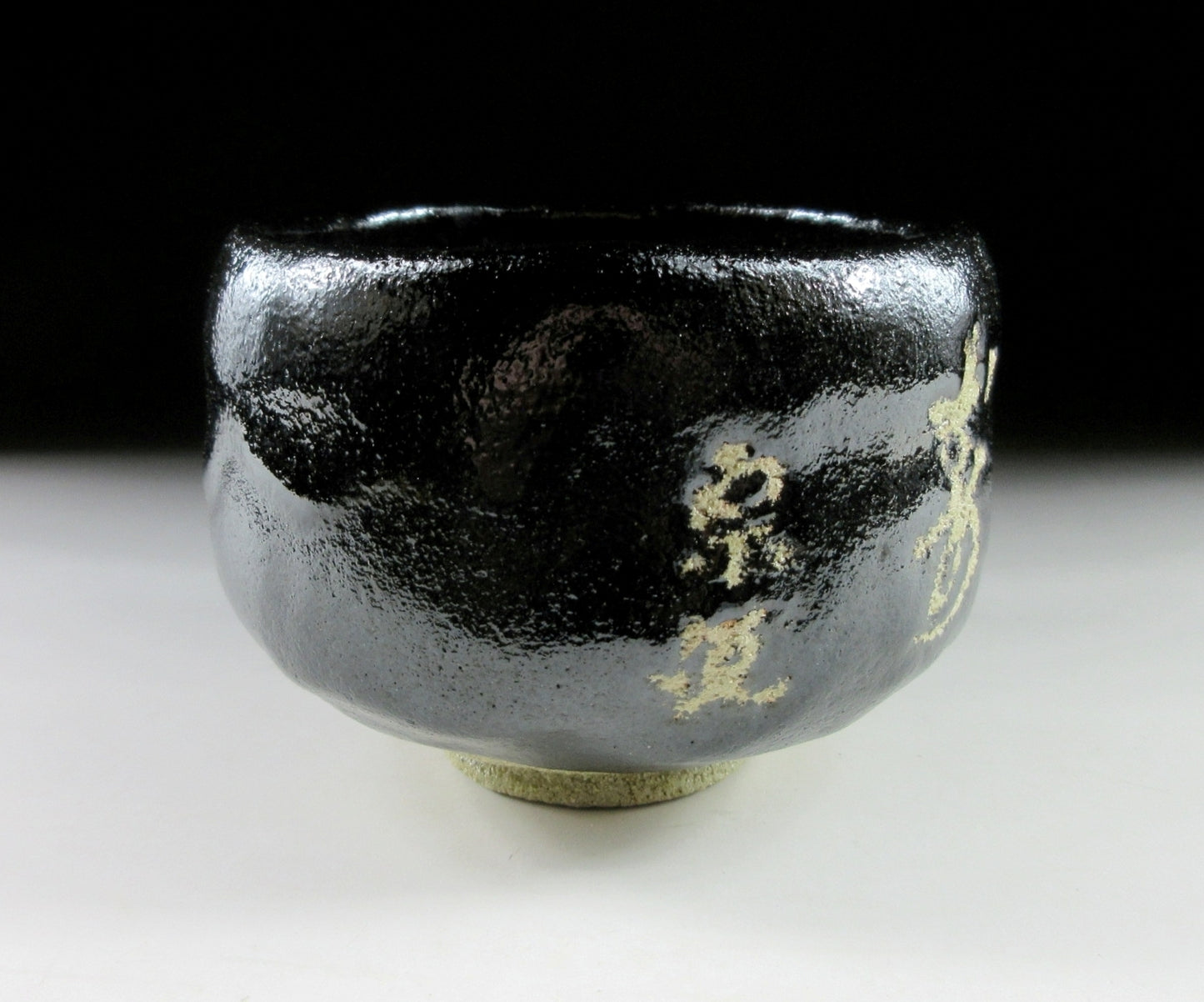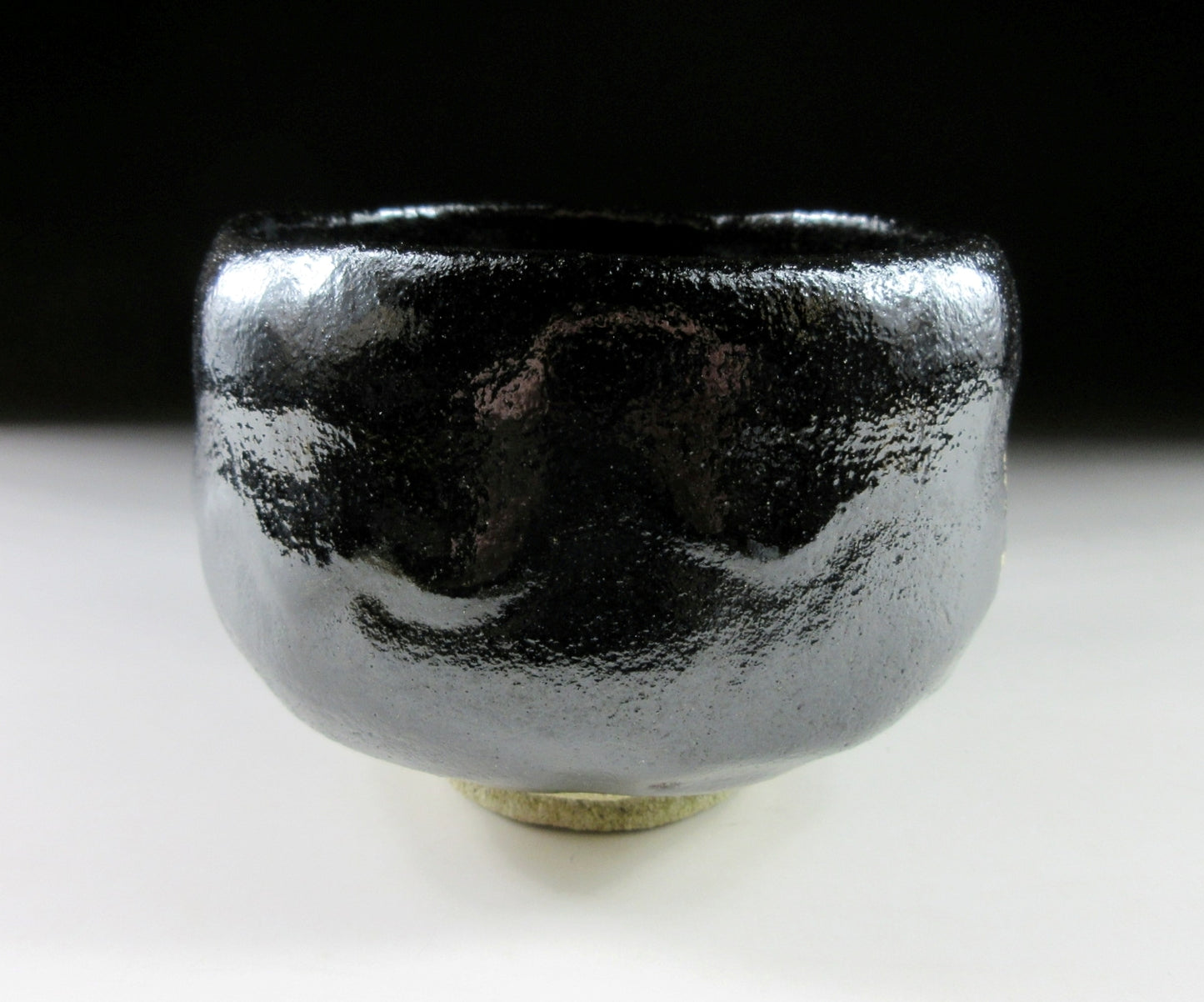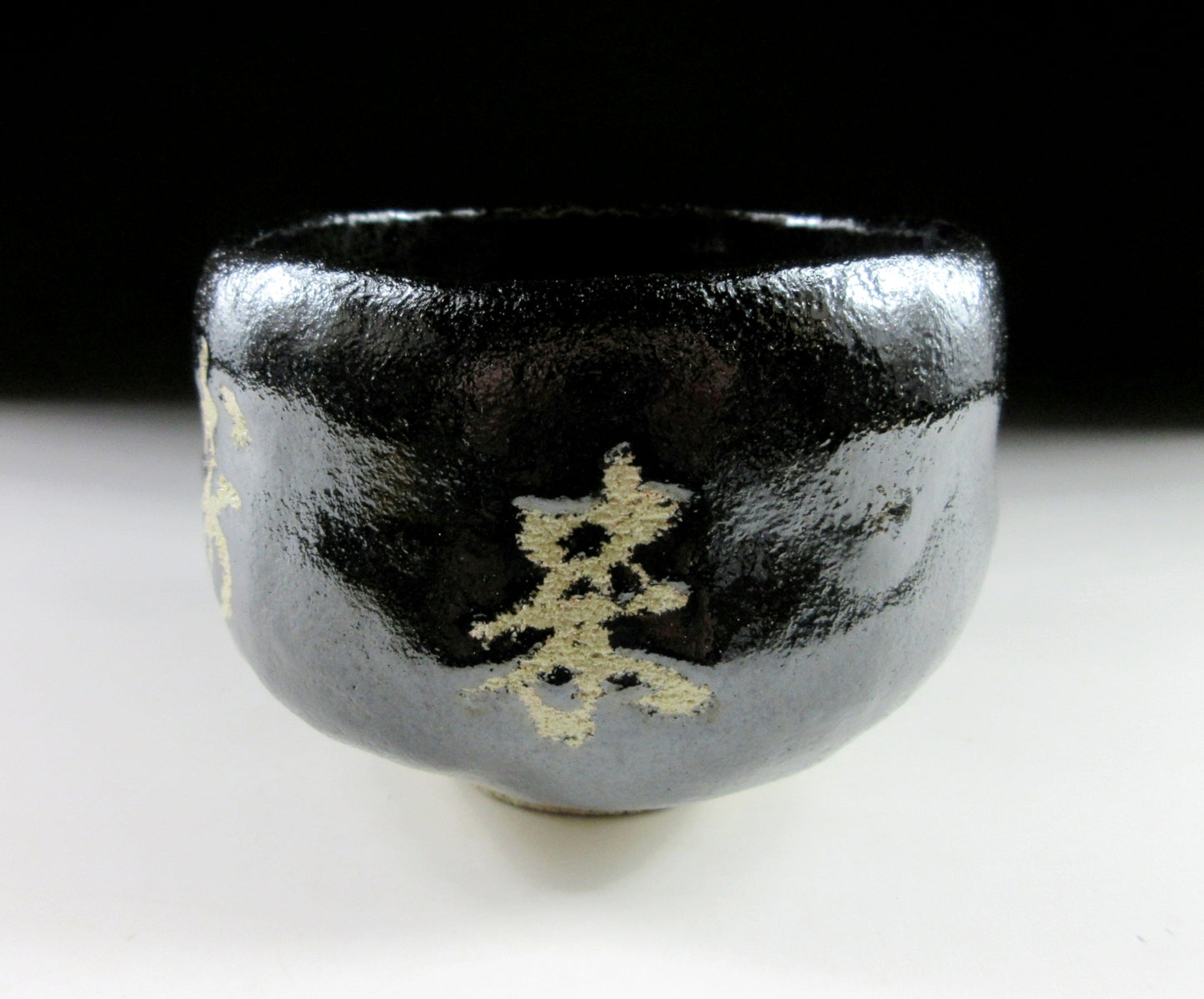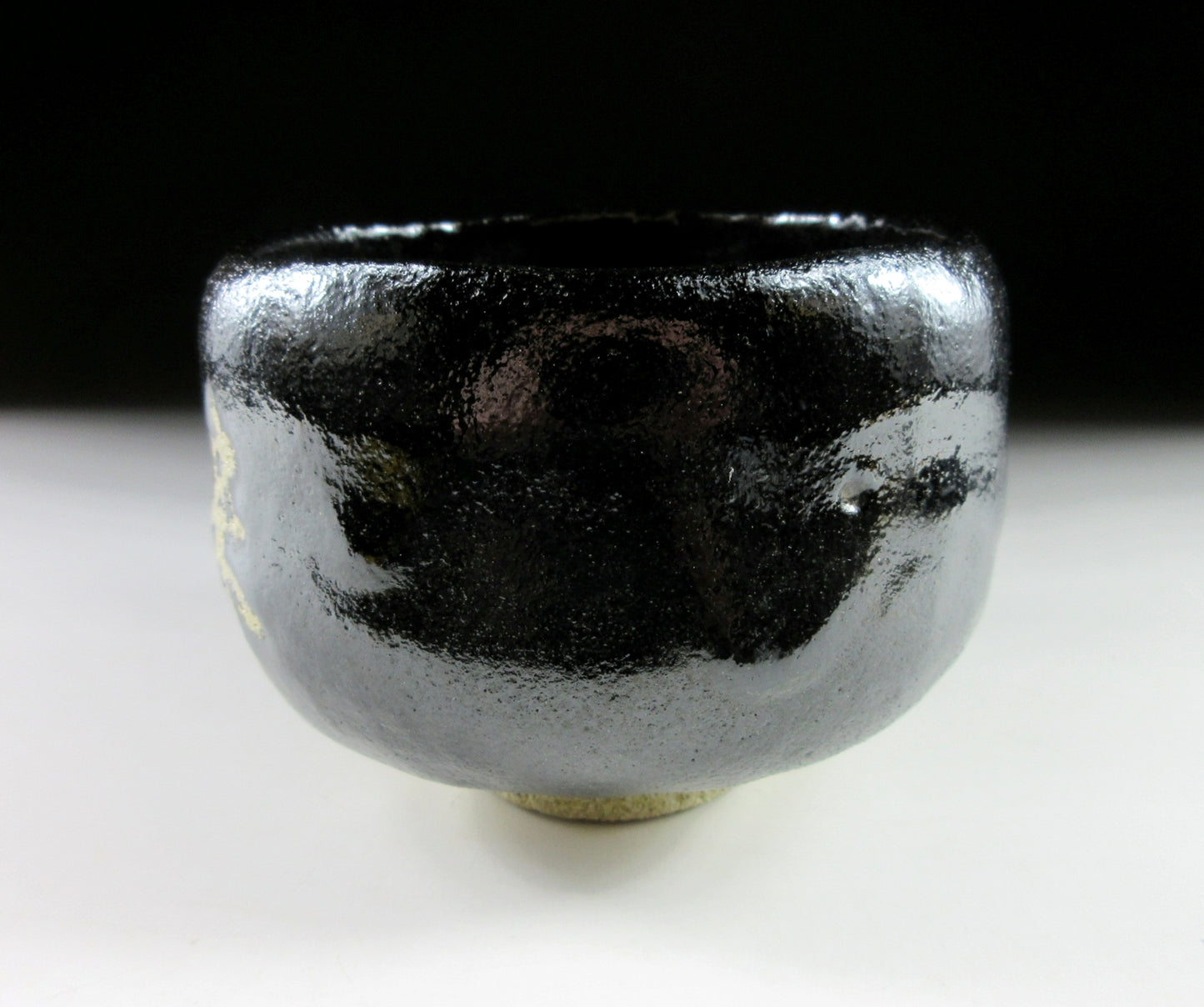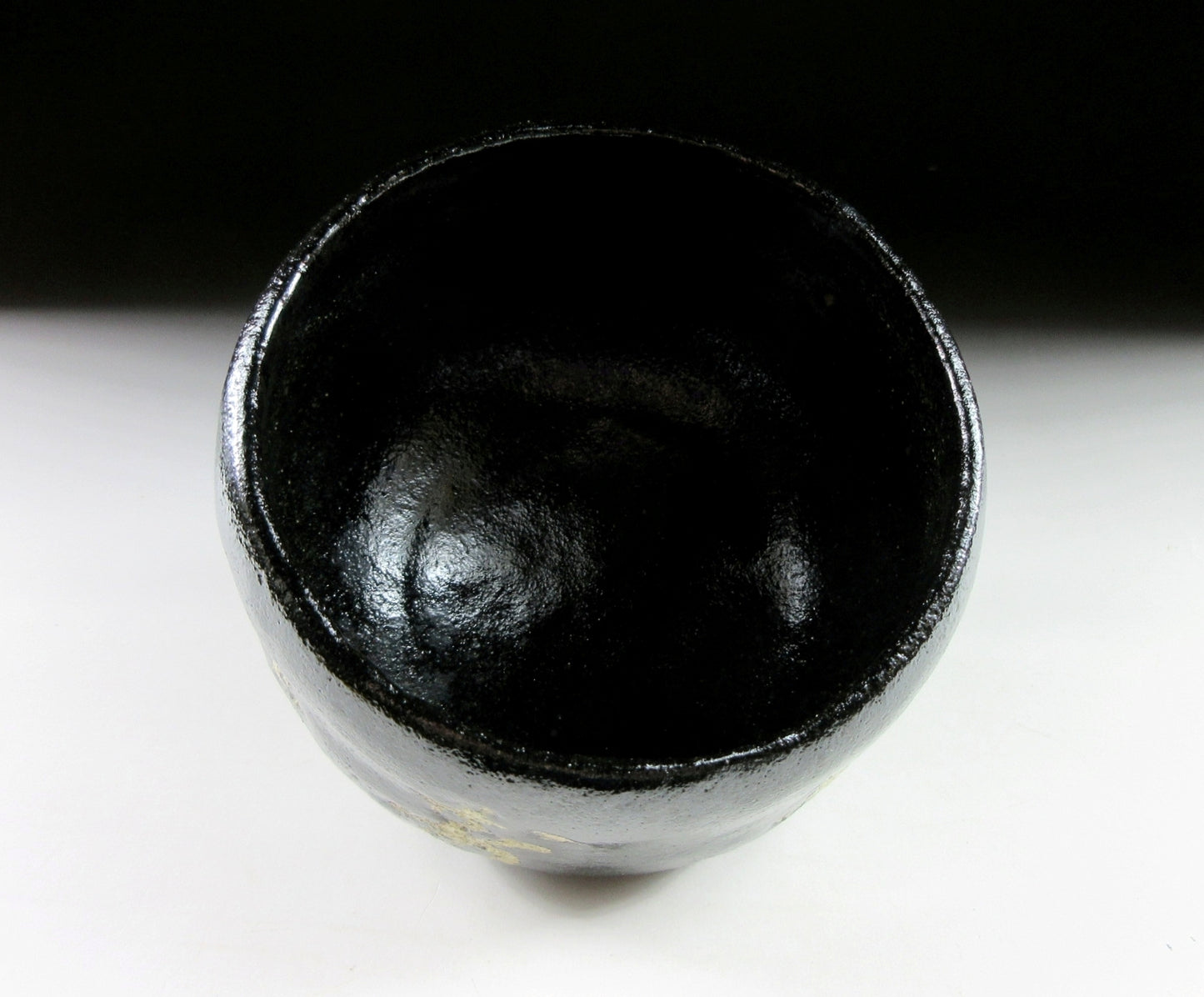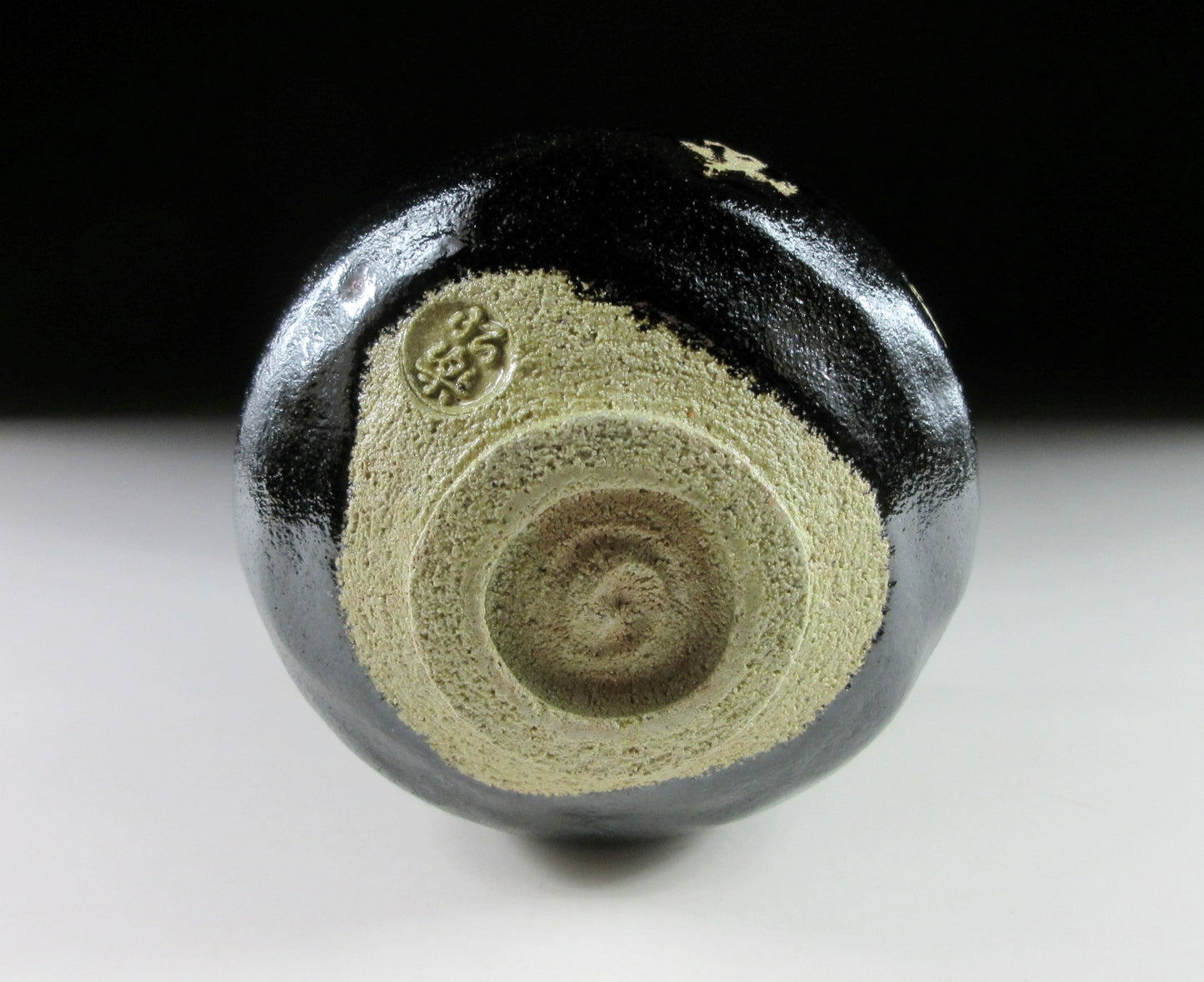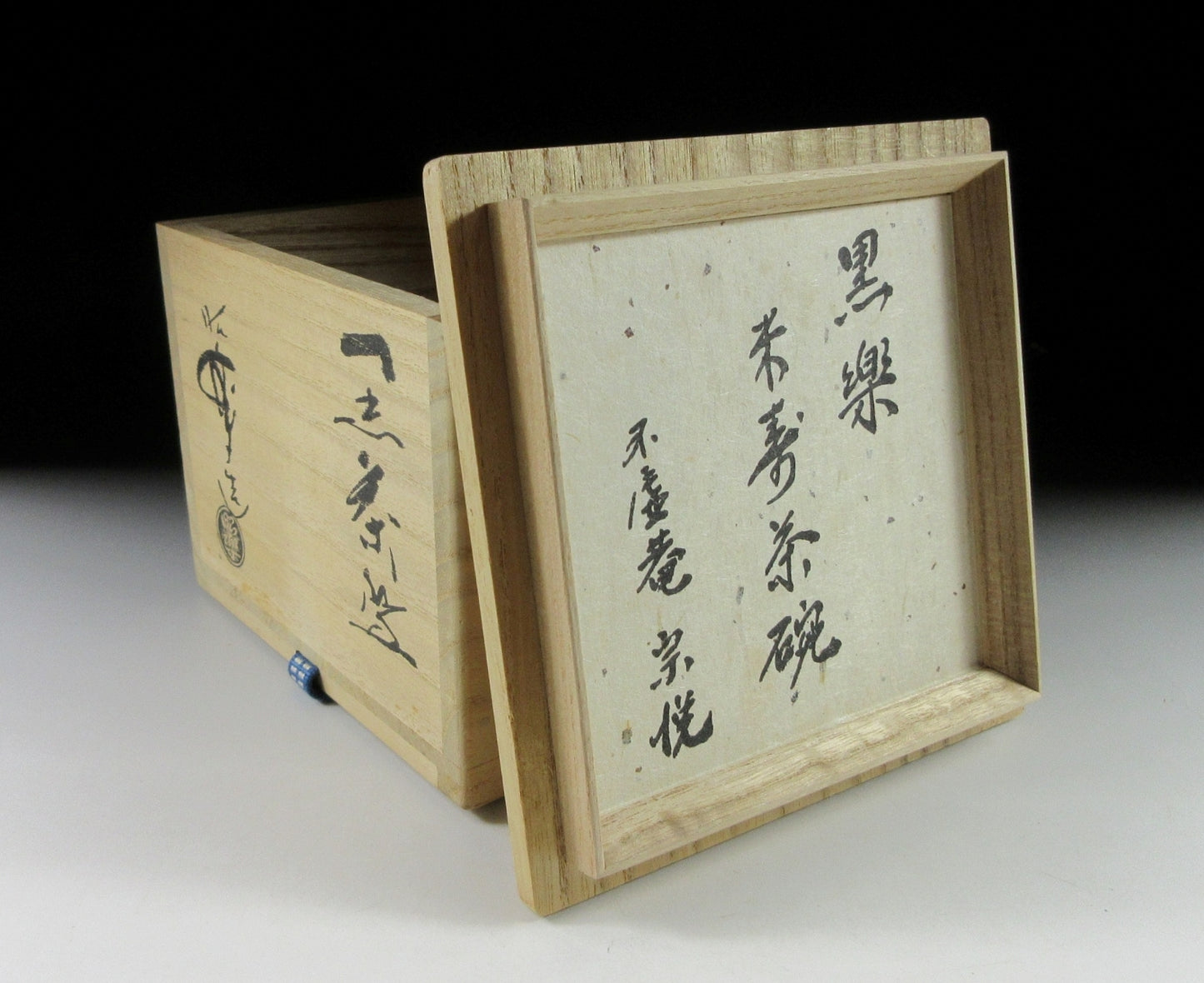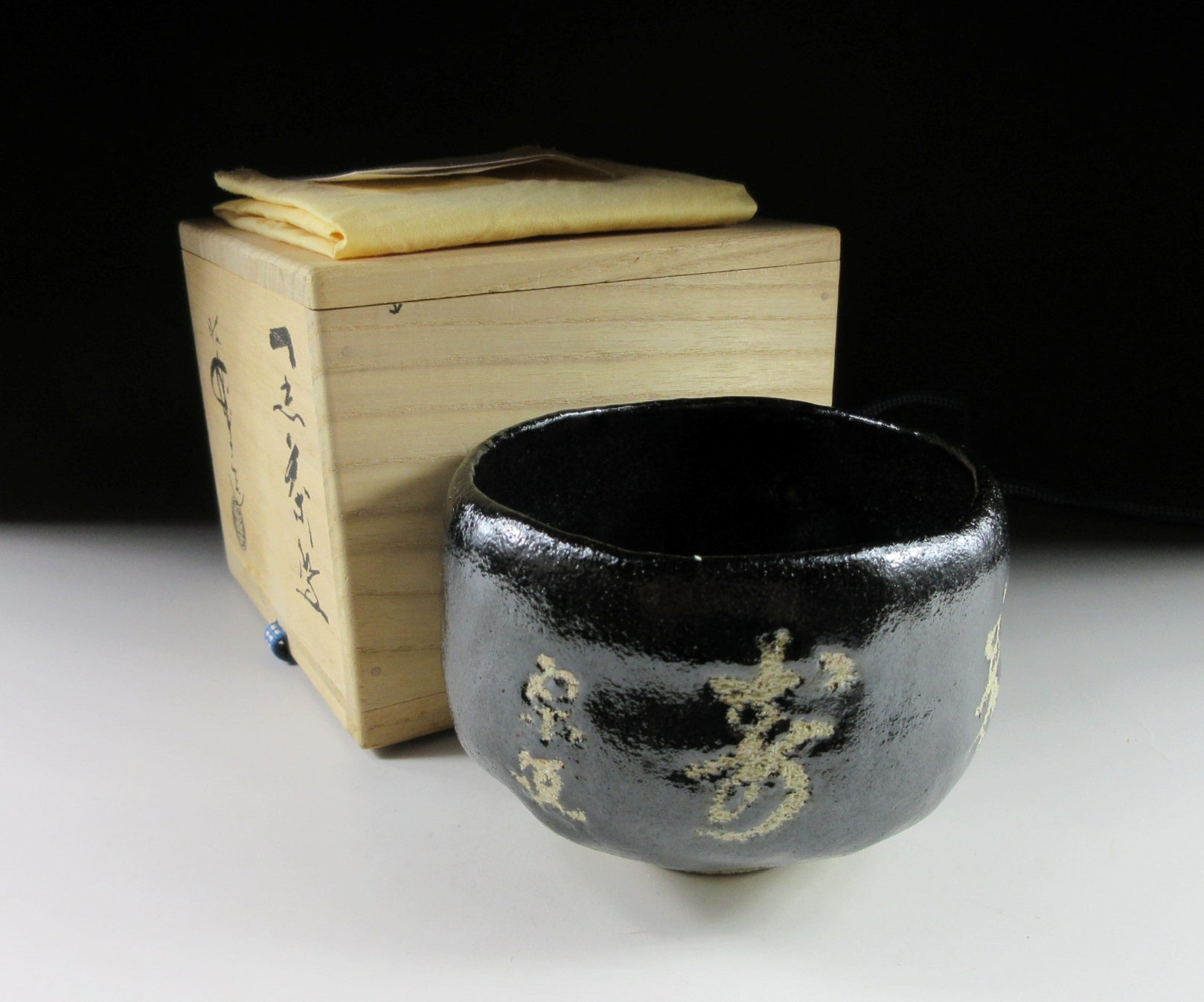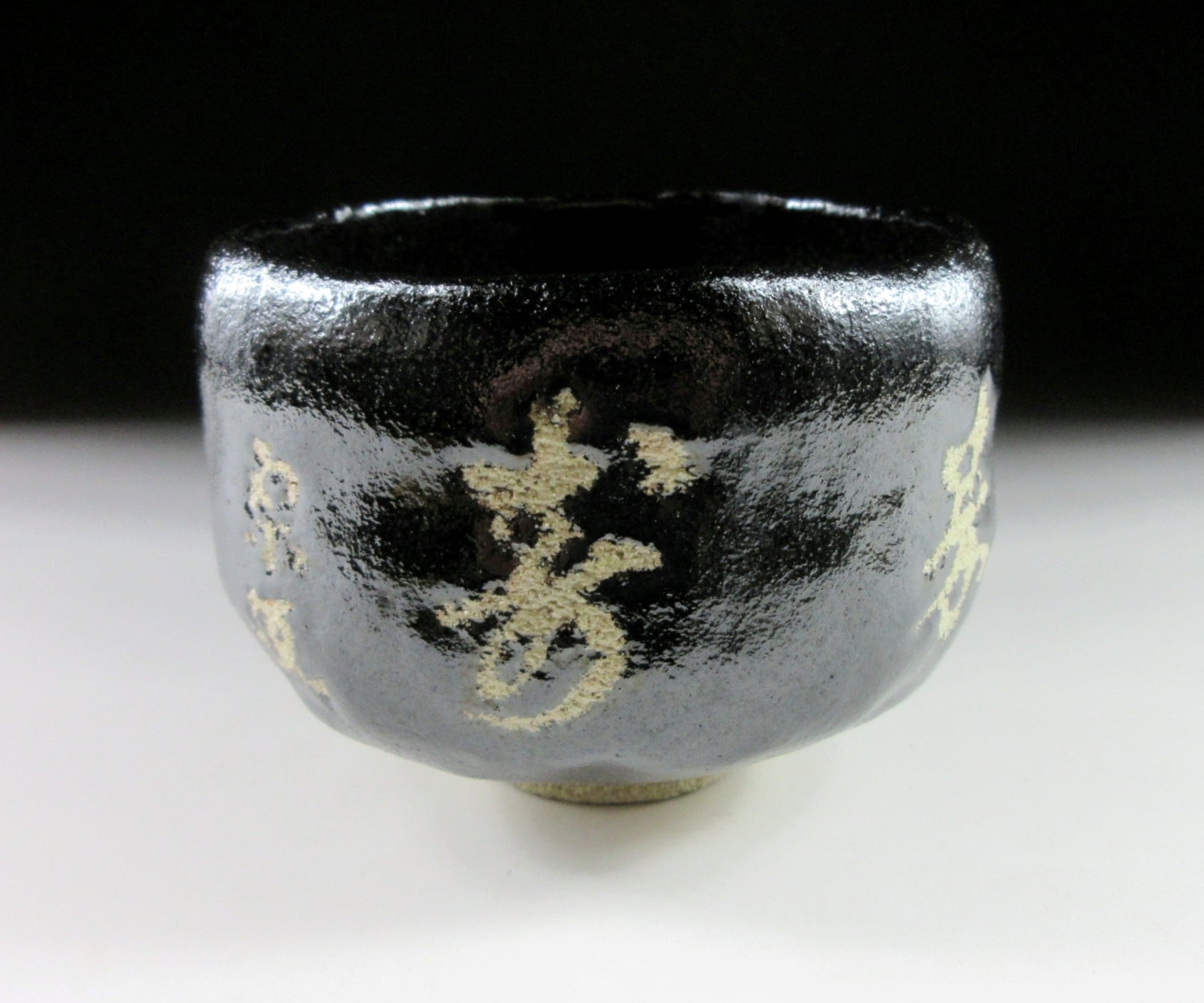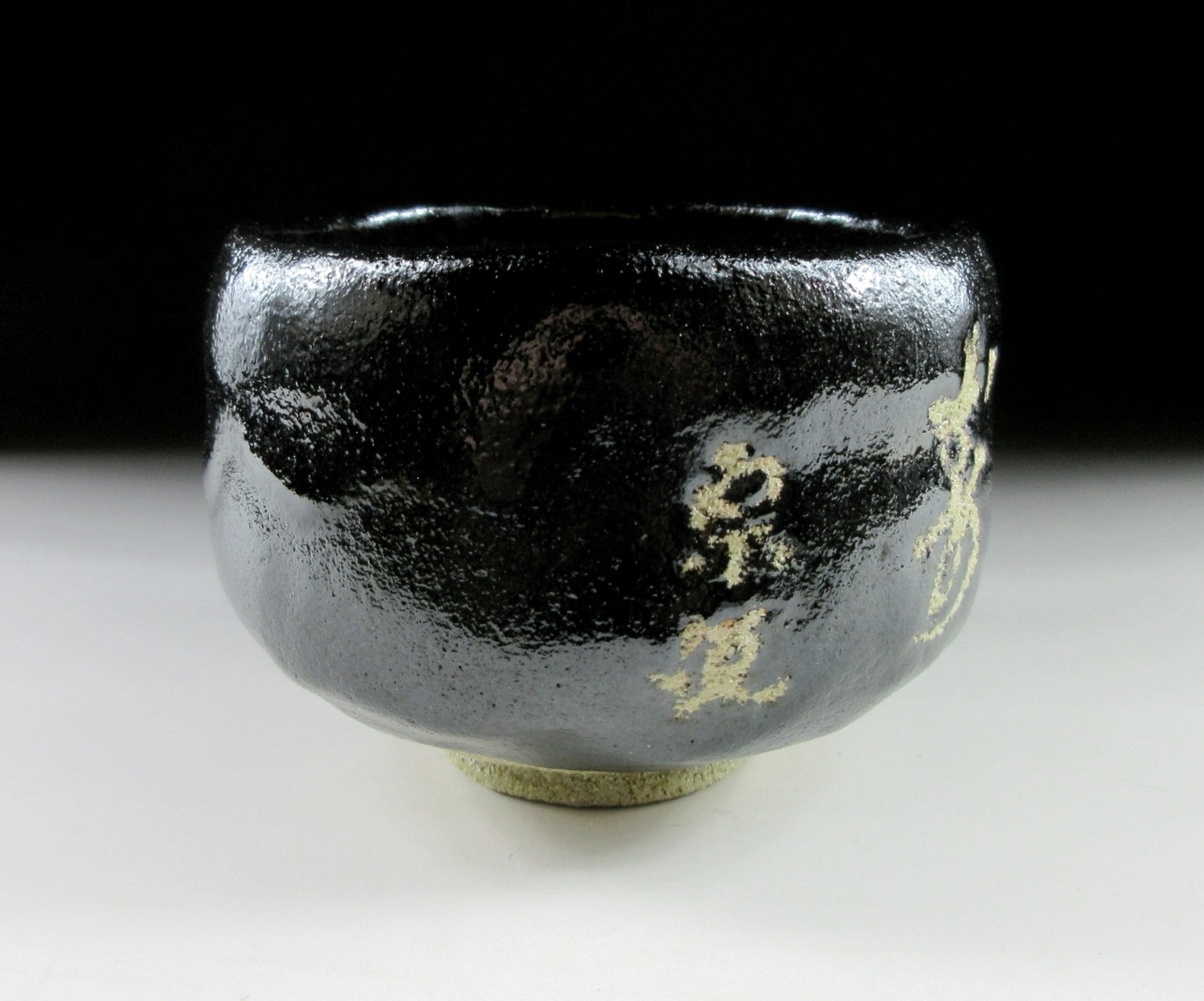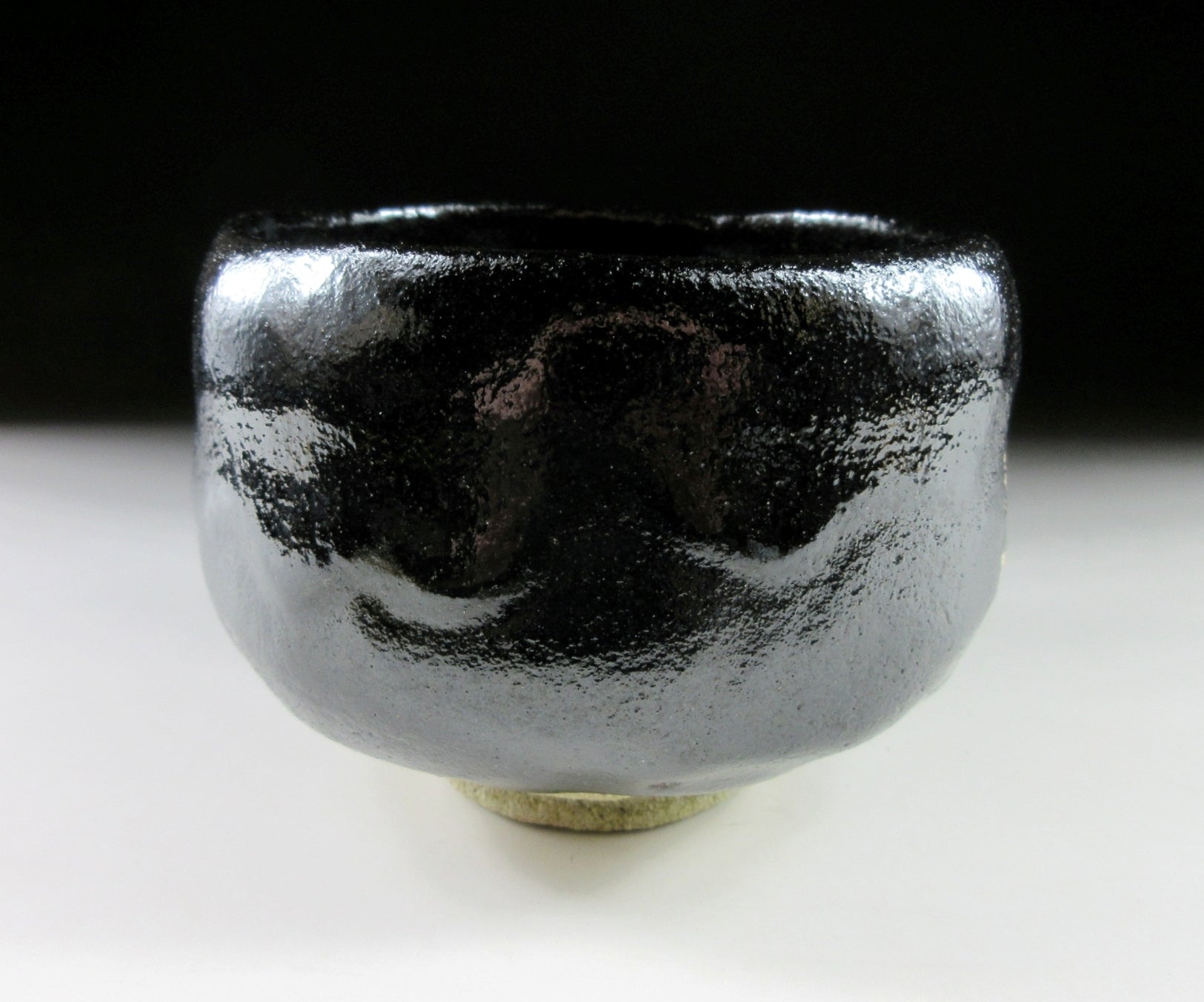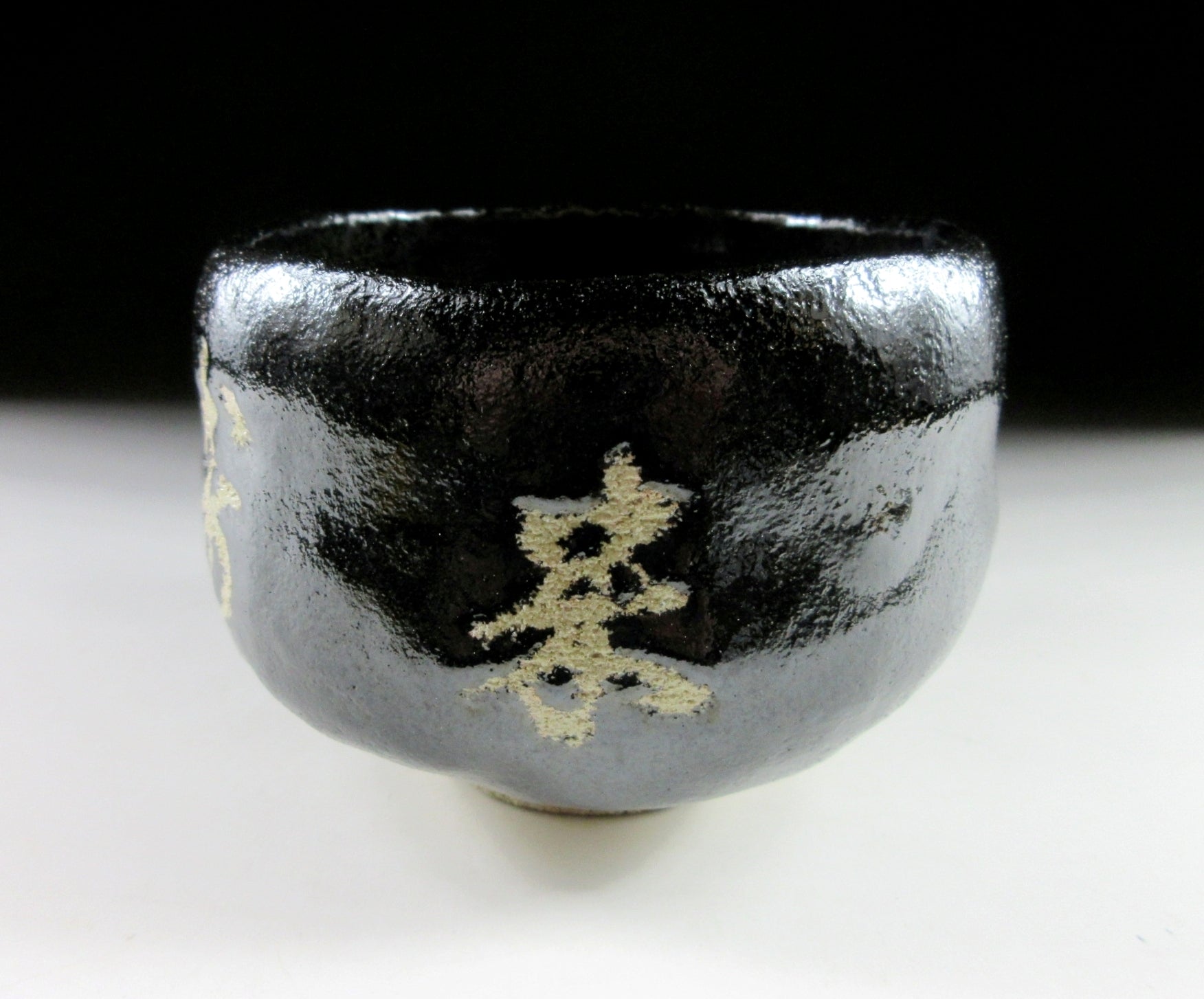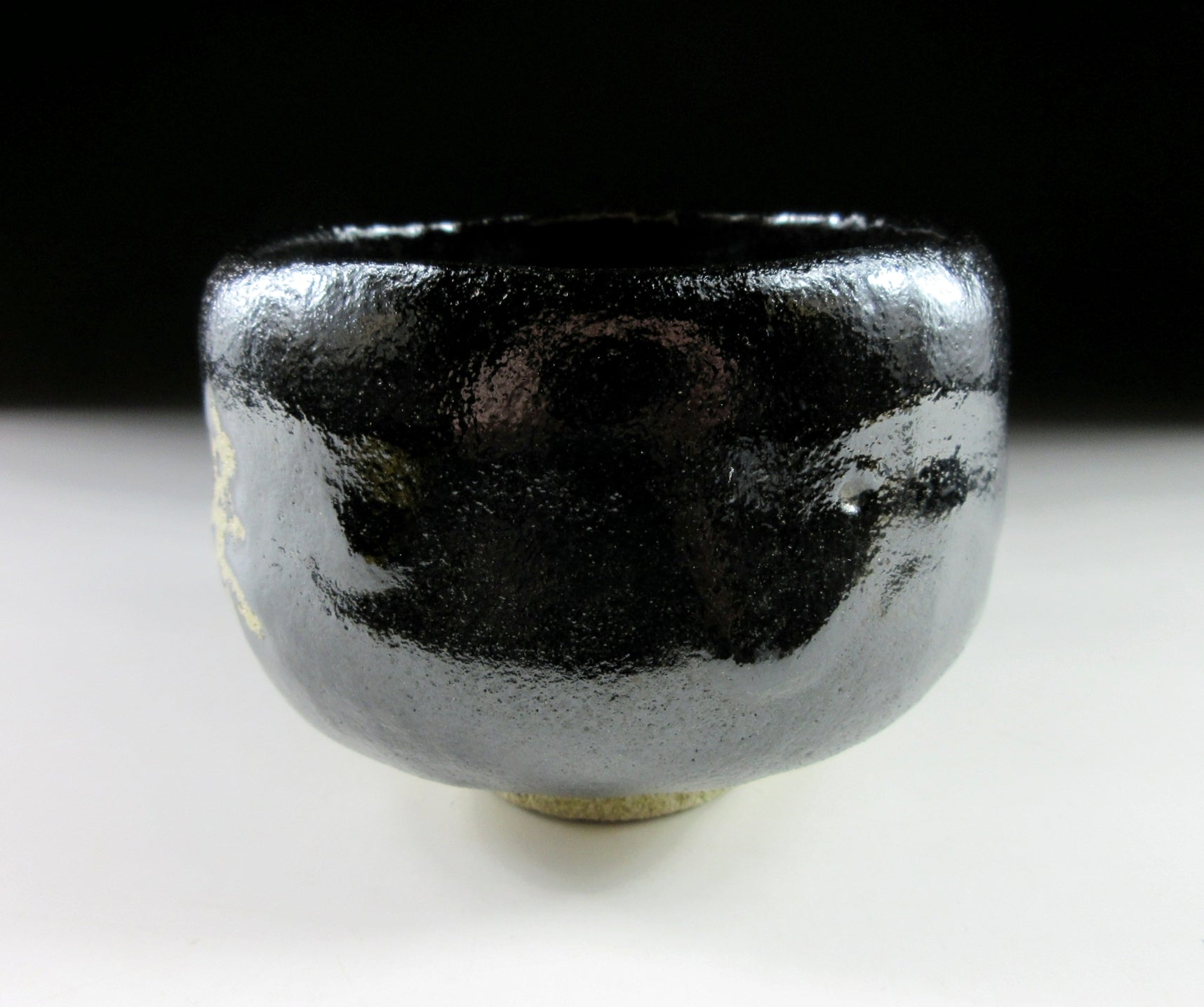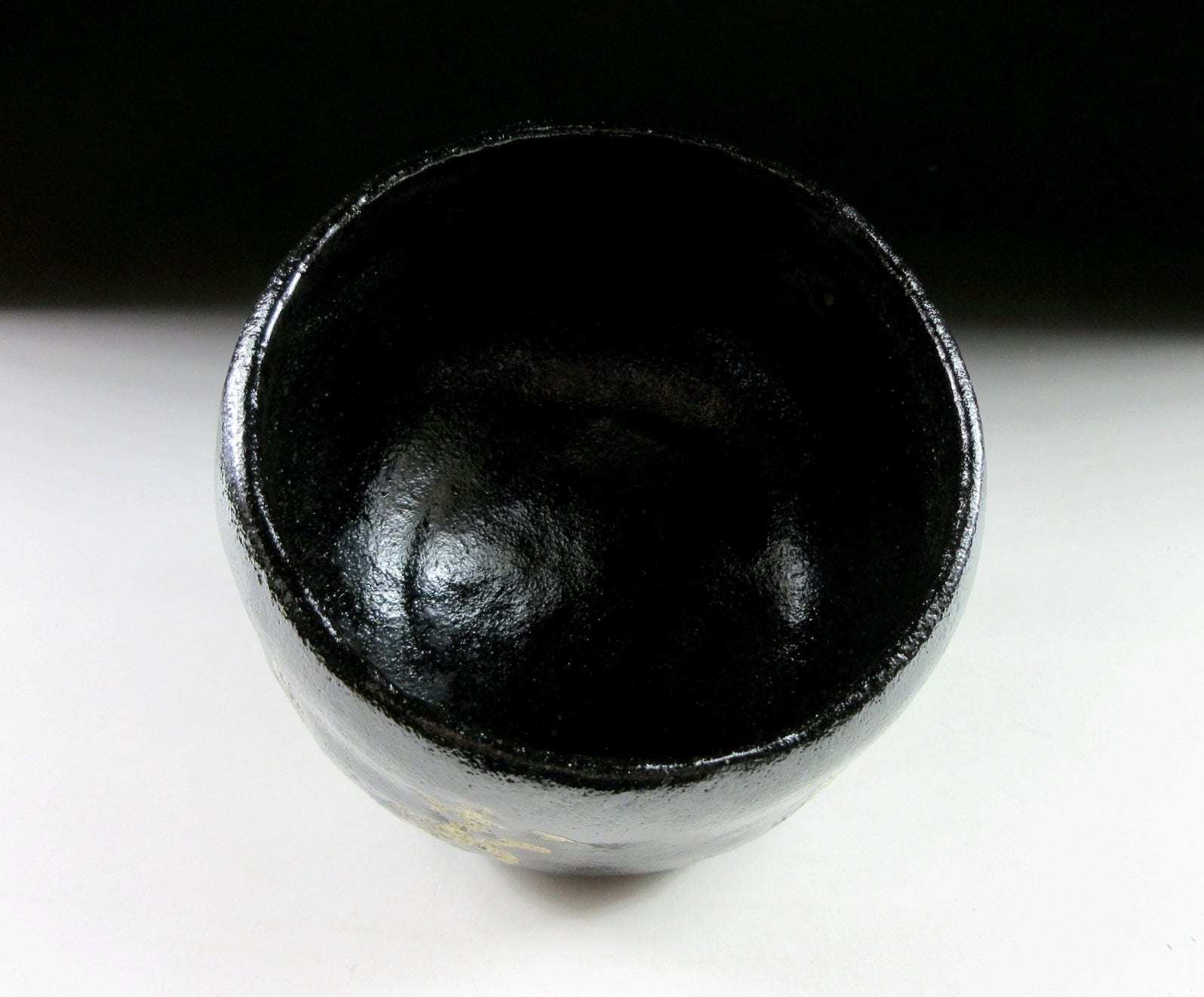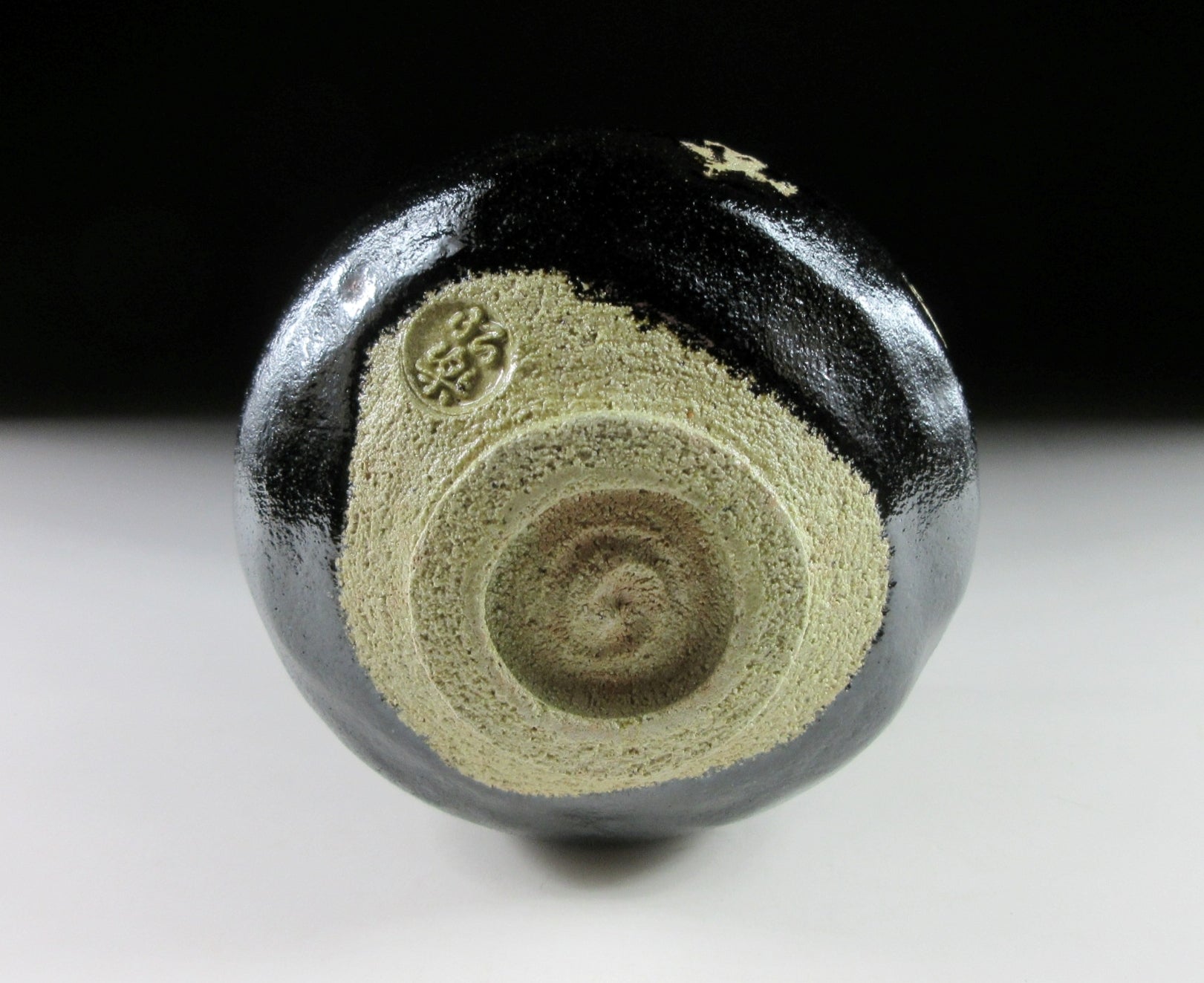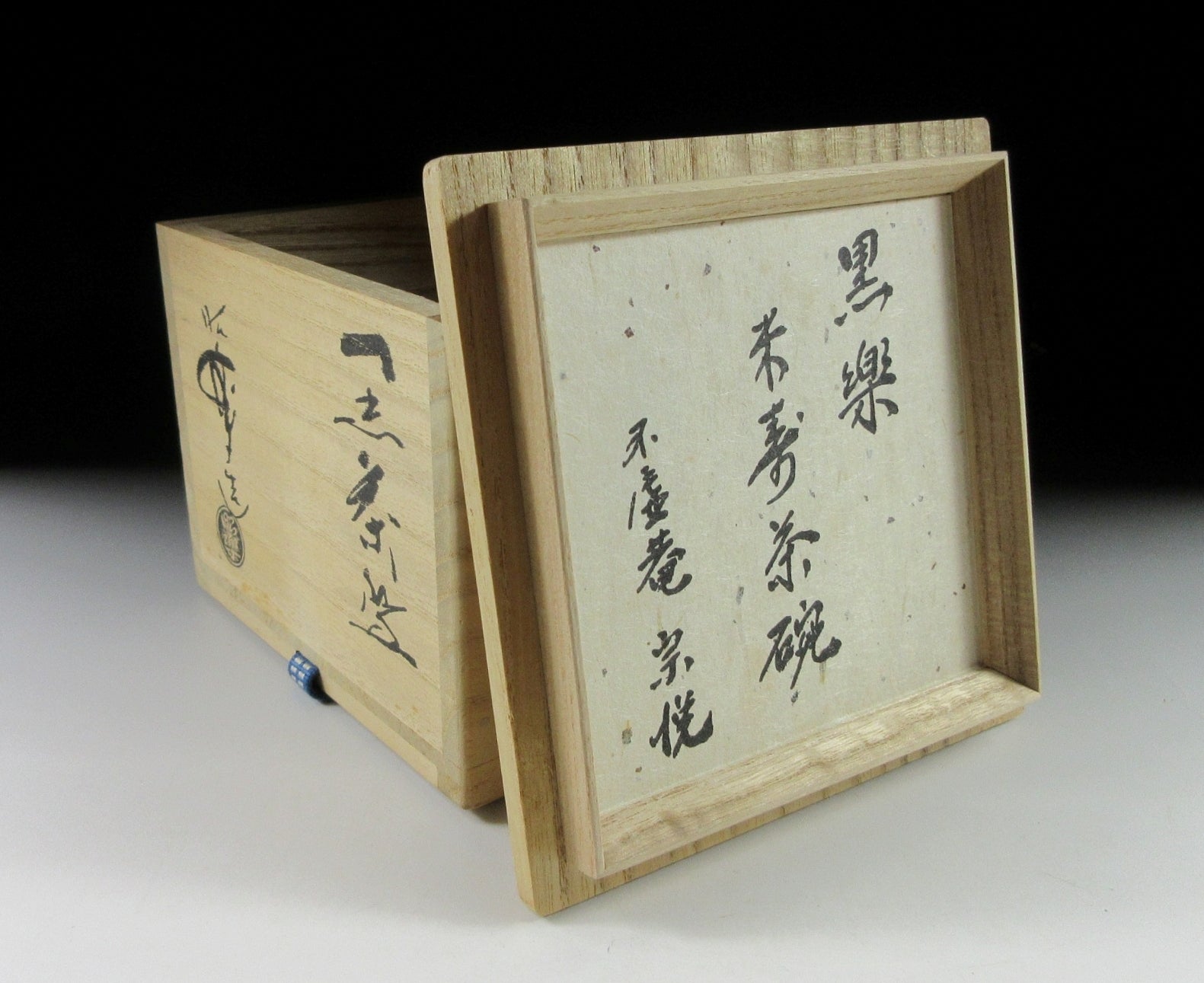Kominka Zakka
Sasaki Shoraku III 'Beijjyu' Chawan
Sasaki Shoraku III 'Beijjyu' Chawan
Couldn't load pickup availability
*SHIPPING OPTIONS VARY DEPENDING ON THE DESTINATION, PLEASE SCROLL TO THE END OF THIS LISTING FOR MORE DETAILS.
This listing is for a kuro raku chawan made around 20 years ago by Sasaki Shoraku III. The kanji characters decorating the chawan read as ‘fukuan’, ‘kome’ and ‘kotobuki’. When kome and kotobuki are read together it means ‘beijyu’. Beijyu is a landmark birthday in Japan that celebrates 88 years of age. Fukuan means blessing, and kotobuki means congratulations, and the kanji strokes for 88 are combined to make a single character read as kome. From left to right the underside of the lid reads as ‘Muneyoshi Soetsu, beijyu chawan, kuro raku’. Muneyoshi Soetsu is possibly in reference to Yanagi Muneyoshi (1889-1961), philosopher and the founder of the mingei folk art movement, also known as Soetsu. The stamp of the potter can be found on the bottom, and it comes with its original signed wooden storage box. It also comes with a stamped wrapping cloth for when the item is not in use, as well as a Japanese language profile paper about the potter.
Sasaki Shoraku (b.1944) is a third generation Raku-ware potter working out of Shoraku Gama in Kyoto. He succeeded his father Shoraku II in 1962, and has devoted much of his career producing high quality tea ware. Shoraku Gama specializes in aka raku and kuro raku pieces, and a lot of effort has gone into preserving traditional methods and techniques. Also Shoraku chawan usually have the wonderful ‘gozan’ peaks on the rim. These peaks represent the five main Zen temples in Kyoto, and are considerable an important and traditional aesthetic associated with high quality Raku-ware. **Fellow sellers, this information was researched by Kominka Zakka and cannot be used in your own listings.
Raku ware refers to low-fired ceramic ware first made in Kyoto by the Raku Family, its origins going as far back as the 16th century. It is traditionally characterised by being hand shaped rather than thrown. Raku is typically delicate, lightweight, and earthy to the touch. Aka (red) raku bowls are fired at 800 degrees, whilst the kuro (black) bowls can be fired up to 1200 degrees. The glaze for black bowls is made from crushed black stones retrieved from the Kamogawa River in Kyoto. Red bowls are coloured by adding translucent glaze over a pinkish clay body. When using raku bowls you should always wipe well with a warm cloth before use. It is possible to cause small cracks if you suddenly add boiling water.
Sizes
Box: H.12cm (4.7”) x 14.7cm (5.7”) x 14.7cm (5.7”)
Chawan: H.8.3cm (3.2”) x Dia.11cm (4.3”)
Condition
It’s in very good condition with no chips or cracks, the box however is a little spotty.
THESE ARE SHIPPING ESTIMATES BASED ON THE CURRENT GLOBAL SITUATION
**Germany, France, Greece, Spain, Poland, Austria, Slovakia, Lithuania, Slovenia: NO SHIPPING. Very strict and expensive packaging laws in place and we are not licensed to send products to these countries. We have no plan to register at this time because the process is in some cases very expensive and complicated, plus each country has its own set of regulations and application process.
**USA, UK, Canada, Australia, New Zealand, Switzerland, Norway: Airmail Small Packet (approx. 15-28 days). Combined shipping available up to 2kgs for Airmail Small Packet (please send us a message).
**Asia: Airmail Small Packet (approx. 15-21 days). Combined shipping available up to 2kgs for Airmail Small Packet (please send us a message).
**Central Asia, Middle East, South Africa, Brazil, Mexico: EMS Express 10-15 days.
**Russia: No shipping methods available.
Share
